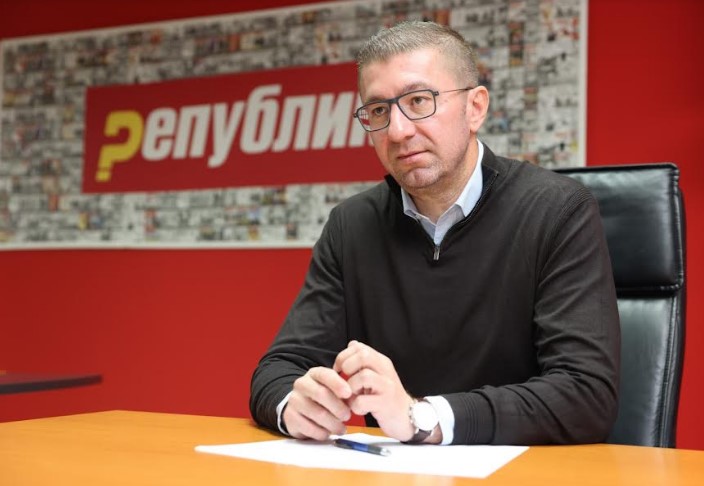In his Klan TV interview, VMRO-DPMNE President Hristijan Mickoski addressed the allegations from the ruling DUI party, that all parties opposed to them are “working for Russia”.
This is the main talking point of the long reigning Albanian party, which is currently facing serious allegations of corruption that are often revealed to the public by VMRO-DPMNE. Even DUI’s slogan in the elections is “No to Russia, yes to Europe”, as DUI demands that the Macedonian parties continue to make concessions with the Macedonian national interersts in favor of Bulgaria and other neighboring countries.
Nobody believes in the stories about Russian influence. That is an attempt by the people who are clinging on to power to shift public attention by imposing a new topic of discussion and now they insist that we join them in discussing this issue, declaring who is for Russia, and who is against it. Historically speaking, in the entire Balkans, Russia’s influence is probably the weakest in Macedonia. Also historically speaking, the citizens of Macedonia have predominantly declared that they see their future in the European Union, Mickoski said.
VMRO-DPMNE opposes making further concessions to Bulgaria without some reciprocity and a clear promise from the EU that this will be the last national concessions that Macedonia will be forced to make on its path to full membership. But SDSM and DUI are trying to pin this position on alleged Russian influence, hoping that this will get them support from international diplomats ahead of the elections.
This is a way to create polarization in the country. They are using the Russian aggression on Ukraine and the international public opinion in the institutions we strive to join, and they hope that they will score points with the EU and the US. On one hand they continue to plunder Macedonia, and in the other they wave the EU and the US flag. I don’t think anyone is naive enough to fall for this, Mickoski said, speaking about DUI and SDSM.
Macedonia has minor Russian business influence and historically, unlike nearly all other Balkan countries, it has not seen Russia as liberator from the Ottomans or any other rule. Even under Communism, Macedonia was part of Yugoslavia, where Soviet influence was strictly limited and even grounds for persecution.




Comments are closed for this post.